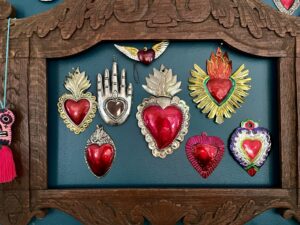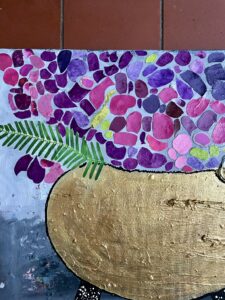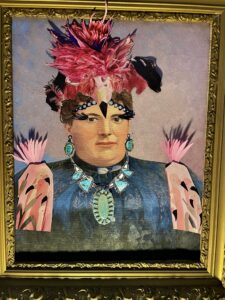Love is Everything

Think of when you were younger and you wanted to be in love. Remember the dating, the hopes, the rejections, the euphoria, the heartbreak, the waiting and watching. What pictures come to mind? How do you feel about all of that now? Maybe, like me, you cringe a little? Or maybe, you understand how vital love, bonding, and true connection are to your health and happiness?
Perhaps you understand that love is central to life.
When I was 29, my brother said I was, “relationship dependent.” It stung and I argued with him, “I’m no more relationship dependent than you!” My baby brother was married and I was not. He held the status of most conventionally-successful sibling. Still in church, married, and teaching. Although I was in graduate school, I held the status of most-scandalous sibling. Divorced after a brief marriage, apostate, studying feminist psychology.
We faced each other at a table in a Dallas restaurant while my date went to the men’s room. Earlier that evening, I felt attractive and worthwhile, dressed in satin and sparkles, my internal lights back on after months of darkness. I glowed in the possibility of loving again, having been dismissed by the person I’d considered the love of my life (and married one year later . . . long story). But my brother felt it was too soon.
Michael, in his newlywed smugness, may as well have dumped the ice bucket on my head. I fought the urge to button myself to the chin and hide under the table. His appraisal stuck to me and stayed.

I’m going to admit something to you here that I generally try to hide. Love occupies me: for better or worse, it’s always been my strongest motivator. Education and achievement, yes. Creative expression, definitely. Work and livelihood, of course. I relish “alone time” for writing and thinking, but my relational life (e.g., friends, my child, and romantic partners), my need to give and receive love, takes center stage, and has for as long as I can remember.
In Michael’s defense, we tell each other to wait, be cautious, enjoy our aloneness. We judge each other’s love lives from the distance of timelines and the dispassion of our own relational status because we hate to see each other suffer and look pathetic. Mainstream cultures insist we’re better off being as independent as possible. We use terms like “rebound,” or “love addiction” to express our revulsion at the weakness we perceive in loving too much.
And why? Who benefits from the mass loneliness of a populace that degrades its yearning to be known and held close?
In A General Theory of Love, Thomas Lewis and his colleagues explore the history of neurophysiological studies pointing to the primacy of love in human life. This densely-packed treatise on our evolutionary paths toward the human ability to bond with others (whether friends, lovers, or our children) shows how love sits at the epicenter of human functioning. Loving benefits our whole-system wellness like nothing else and this fact comes through most clearly in research on the limbic system of the brain. As Amy Banks put it, we are “wired to connect.”
I’ll be writing more on the subject in the weeks to follow and bringing in excerpts from these writers and others. Look for connections to our past conversations on healthy connection, evolution, and creative freedom.

Like to Subscribe?
Get notified when Deborah shares new ideas, art, and creative health information for you.
You have Successfully Subscribed!
We respect your privacy. No information will be shared.